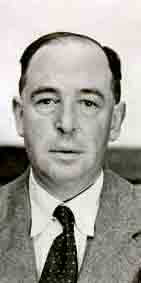 Today (November 29) is the birthday of C. S. Lewis (1898-1963), the professor of English who just wanted to be left alone with his books and his handful of bookish friends. But he turned out to have a headful of exactly what the world needed: Christian faith that ran deep, that embraced the whole world of thought, and that talked ordinary language.
Today (November 29) is the birthday of C. S. Lewis (1898-1963), the professor of English who just wanted to be left alone with his books and his handful of bookish friends. But he turned out to have a headful of exactly what the world needed: Christian faith that ran deep, that embraced the whole world of thought, and that talked ordinary language.
It’s remarkable how much good C. S. Lewis accomplished through his writing. He has been a constant point of reference for a certain type of Christian academic, and his influence is hardly fading in our time. Part of the Lewis magic is that he wrote in so many genres: If you have a taste for Lewis, you can always be reading something by him without wearying of it. Too much Narnia? Switch to the apologetics. Not buying the argumentative style? Check out the imaginative fiction like The Great Divorce or Pilgrim’s Regress. There are poems, science fiction, occasional essays, literary binges, spiritual counsel, and a great mass of letters.
If you read the final volume of his collected letters –and you should!– you can see Lewis near the end of his life, making ad hoc attempts at sorting out what sort of writerly persona he had, and what his influence on the Christian world ought to be. In a classic little note to Carl Henry in September of 1955, Lewis politely declines to write articles (perhaps for Henry’s upcoming magazine Christianity Today) on doctrinal topics. “I wish your proeject heartily well but can’t write you articles,” he says.
My thought and talent (such as they are) now flow in different, though I think not less Christian, channels, and I do not think I am at all likely to write more directly theological pieces. The last work of that sort which I attempted had to be abandoned. If I am now good for anything it is for catching the reader unawares — thro’ fiction and symbol. I have done what I could in the way of frontal attacks, but I now feel quite sure those days are over.
So it was to be the sneak-attack via fiction for Lewis from this point on. Lewis may also have been distancing himself slightly from too close a contact with the American evangelicals whose love for his work was destined to keep growing. In an interesting 1960 letter to his publisher, he refuses to give permission for his book Miracles to be translated into Japanese if, as the translator hoped, the text was to be altered in certain ways. Whatever “those expurgations” were, Lewis could tell that their intention was “that I should be disguised as a fundamentalist and a non-smoker.” Horrors! To allow himself to be presented in such a way would be “trying to attract a particular public under false pretences.” Lewis goes on:
I have hitherto been acceptable to a good many different ‘Denominations’ without such camouflage, and I won’t resort to it now. The Bapist translator may, if he pleases, add notes of his own, warning readers that the book is at these points, in his opinion, pernicious. But he must not remove them.
So what we (like those Japanese evangelicals) have been left with is Lewis the non-fundamentalist, the uncamouflaged smoker, the unbaptist. And we’ve continued to learn from him what only he can teach, because we haven’t been given another C.S. Lewis.
One more letter from the late period: A 1959 letter to Don Holmes, in which he is responding to the fulsome praise that his books do some people more good than the Bible itself does! The response is classic Lewis:
If my books are sometimes permitted by God to deliver to particualr readers a more perceptible challenge than Scripture itself, I think this is because, in a sense, they catch people unprepared. We approach the Bible with reverence and with readiness to be edified. But by a curious and unhappy psychological law these attitudes often inhibit the very thing they are intended to facilitate. You see this in other thing: many a couple never felt less in love than on their wedding day, many a man never felt less merry than at Christmas dinner, and when at a lecture we say ‘I must attend,’ attention instantly vanishes.
Of course most of us now approach the writings of C.S. Lewis with something like reverence, and certainly with “readiness to be edified.” Do we lose thereby some of the surprise value that his works had before his unofficial literary canonization? I don’t think so. C.S. Lewis is not the summit of Christian literary achievement –he himself would point us on to a hundred other authors we should invest our time in– but he continues to be a fascinating and rewarding voice, as relevant and immediate as he was during his own lifetime.